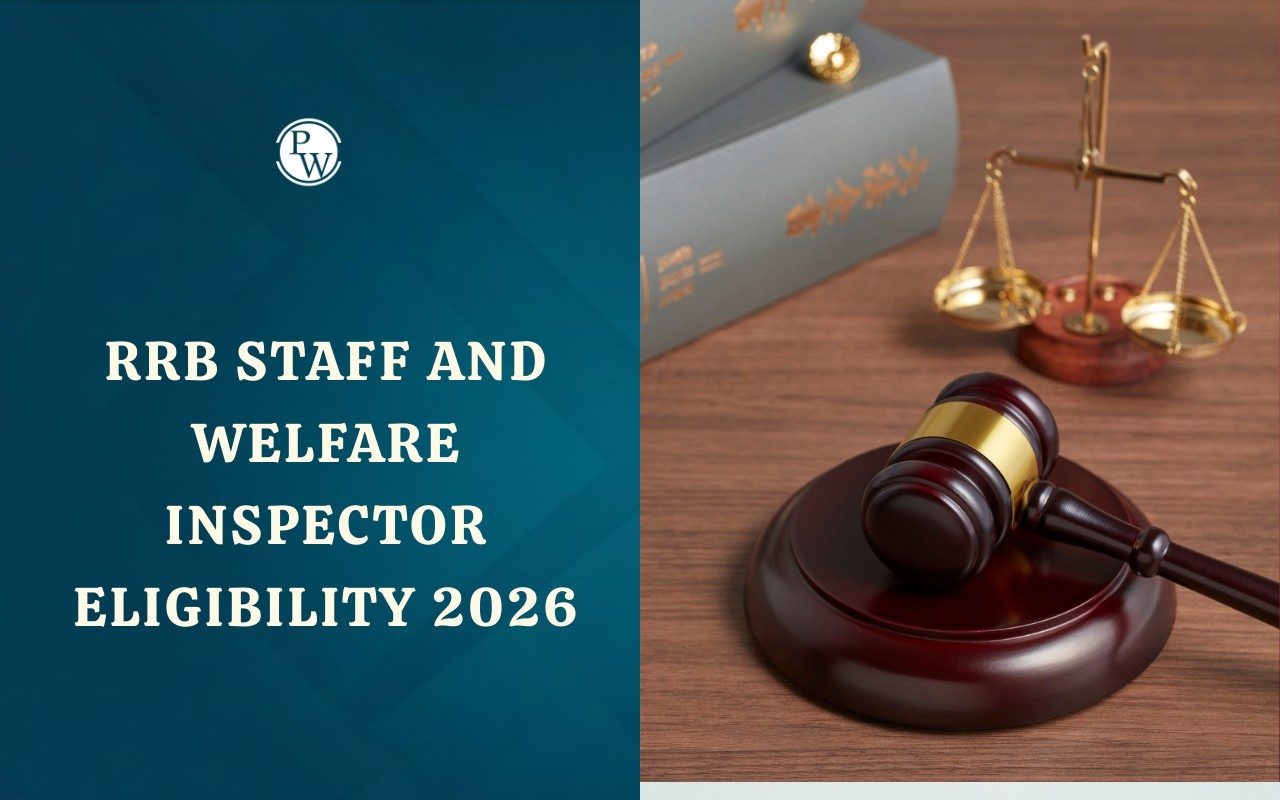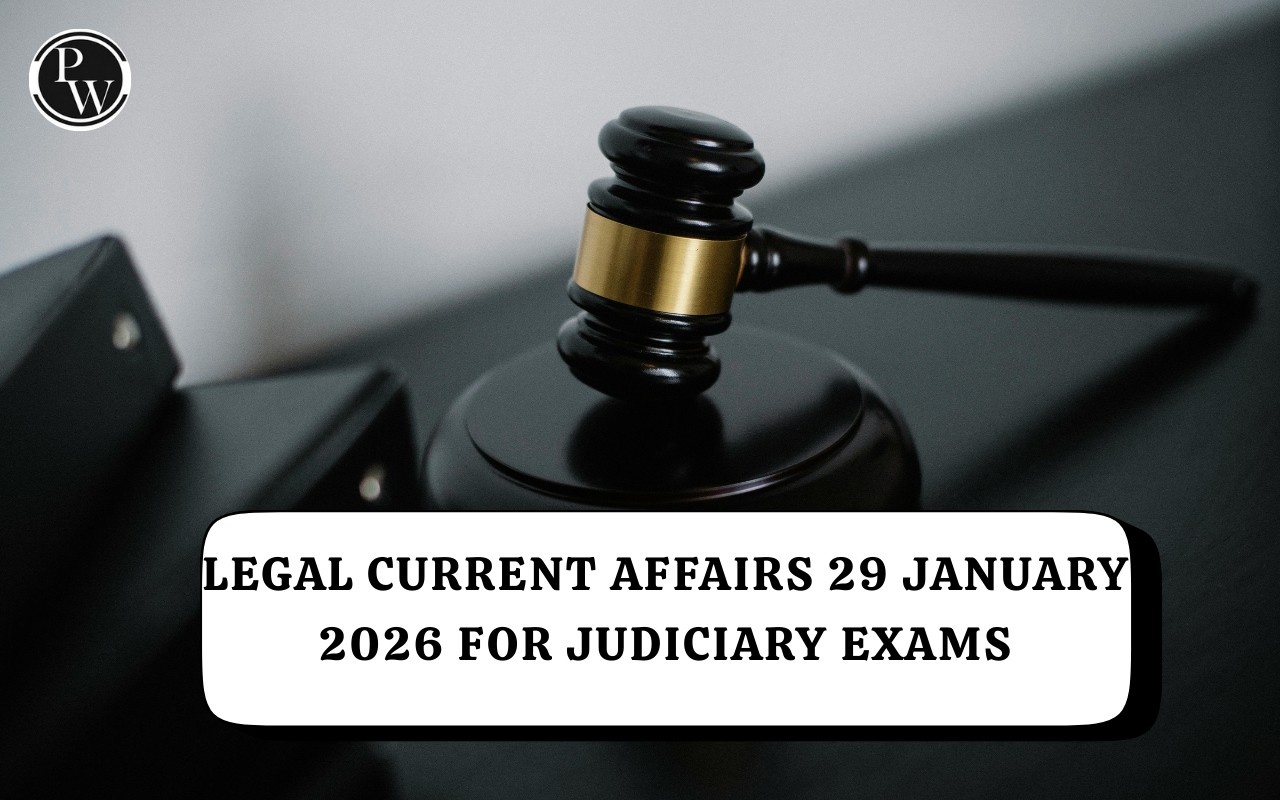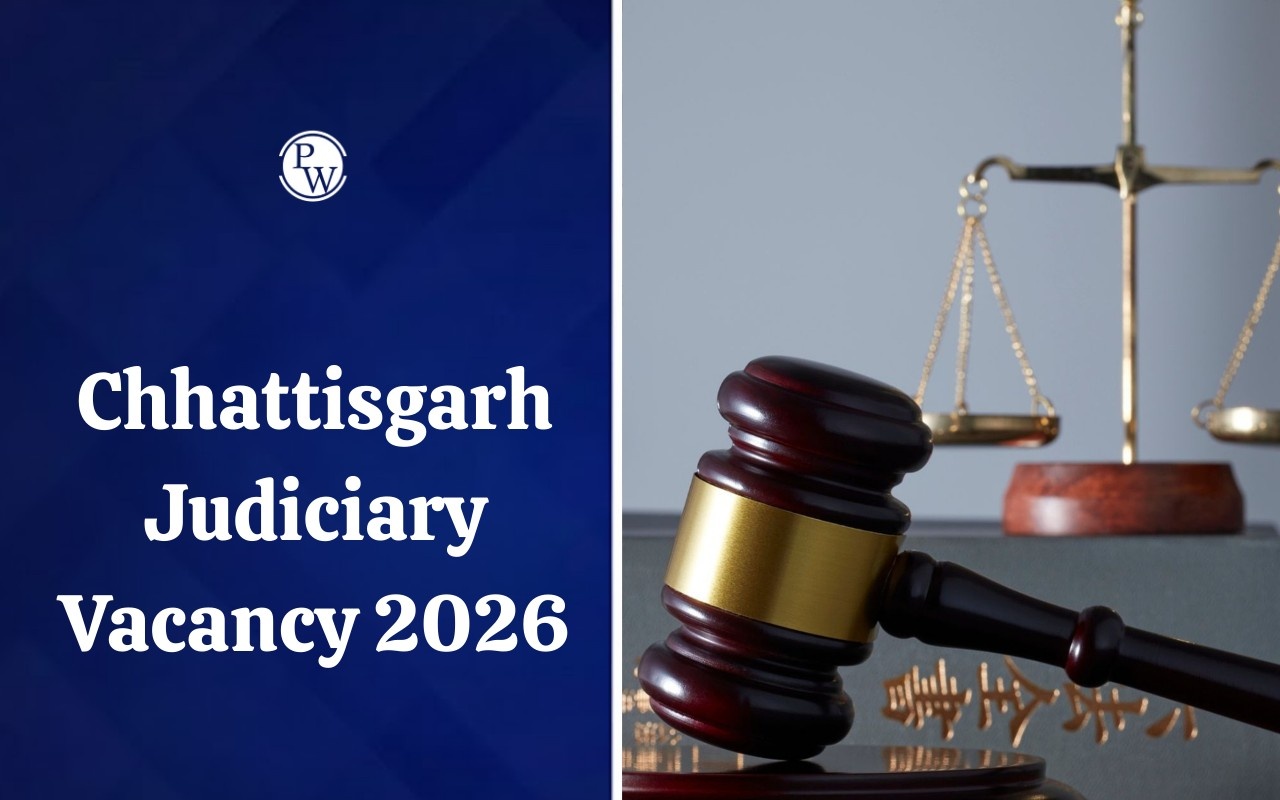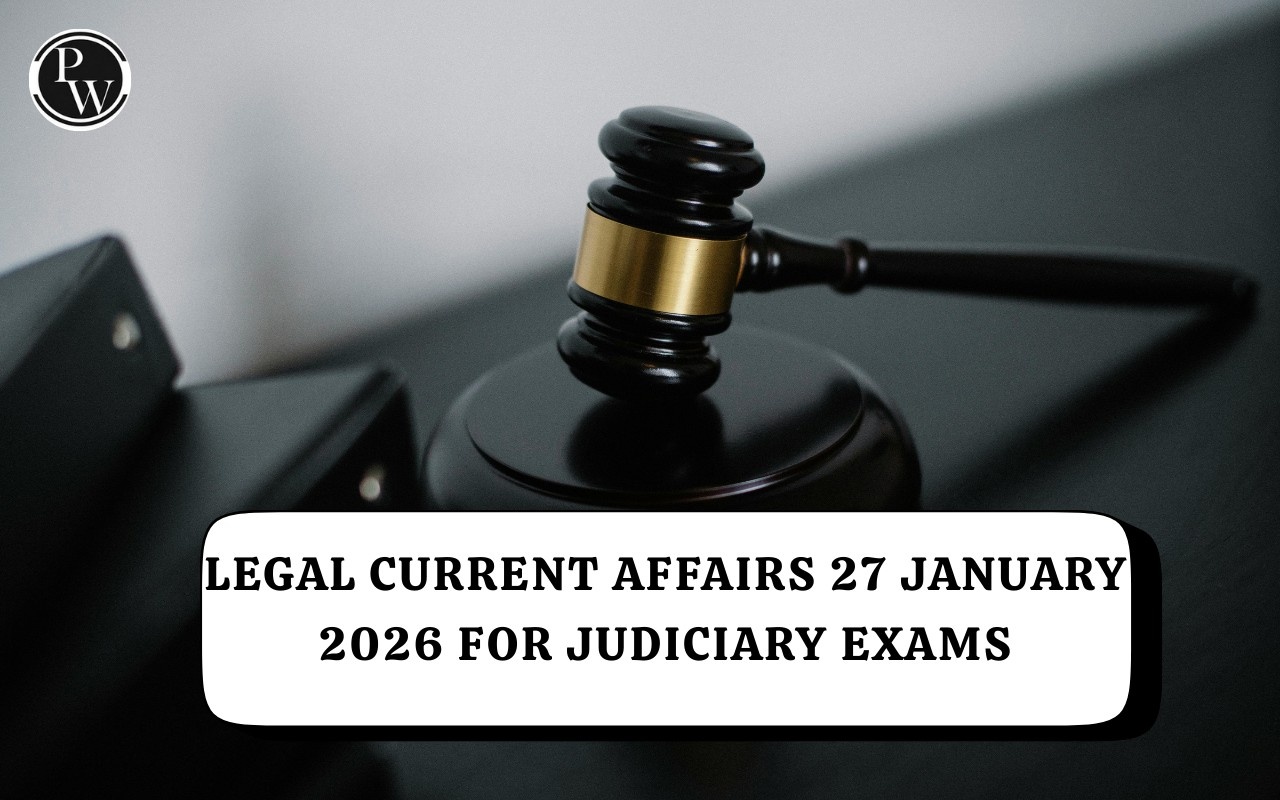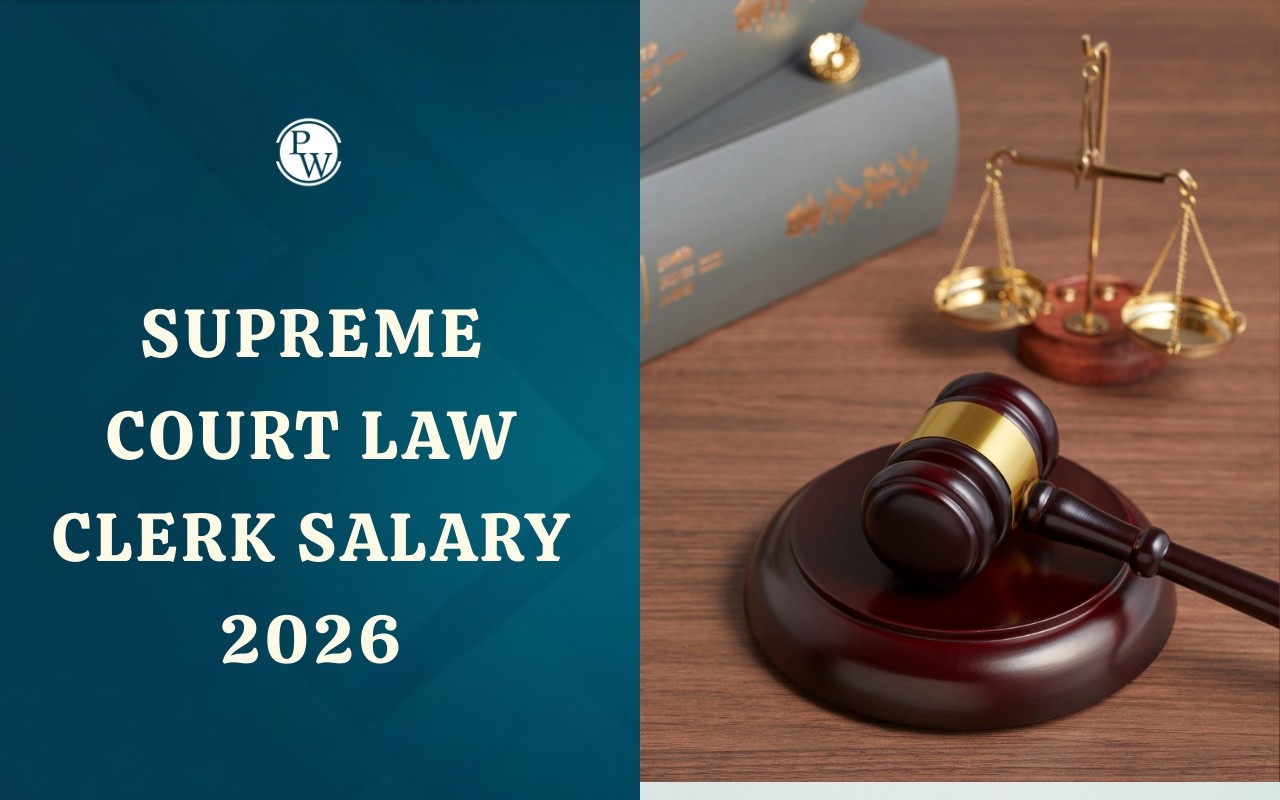
Functions of Judiciary: For aspirants preparing for the judicial exams, understanding the functions of the judiciary is crucial for several reasons. Familiarity with the judiciary's functions equips aspirants to handle questions related to judicial review, legal precedents, and the balance of powers effectively during the exams. It aids in developing critical thinking skills necessary for judicial reasoning and decision-making. A thorough understanding of the judiciary's functions is vital for both passing judicial exams and succeeding in a judicial career.
Introduction to Functions of Judiciary
The functions of Judiciary are central to the operation of a just and effective legal system. As an essential branch of the government, the judiciary is tasked with upholding the rule of law and ensuring that legal disputes are resolved impartially and fairly. Its role extends beyond merely adjudicating cases, the judiciary also plays a crucial part in interpreting laws, safeguarding constitutional principles, and protecting individual rights. Through its various functions, the judiciary fosters stability, promotes justice, and upholds public confidence in the legal system. Its ability to provide remedies, interpret laws, and oversee government actions underscores its pivotal role in maintaining a balanced and equitable society.What is Judiciary?
The judiciary is the branch of government responsible for interpreting laws, settling disputes, and ensuring justice as per the Constitution of India. It protects the rights of citizens and maintains the rule of law in the country. The judiciary is independent and works without interference from the legislature or the executive. While the legislature makes laws and the executive enforces them, the judiciary ensures that these laws are applied fairly and justly. It acts as the guardian of the Constitution and upholds democratic values.Role of Judiciary in Indian Democracy
The role of judiciary plays a vital role in protecting the fundamental rights of citizens and upholding justice in Indian democracy. It acts as a guardian of the Constitution by checking any misuse of power by the government or public authorities. Through judicial review, it ensures that laws and actions follow constitutional principles. The judiciary maintains the rule of law and promotes equality, fairness, and accountability within the democratic system.
10 Major Functions of Judiciary
The Judiciary performs several critical functions within a government, ensuring justice and maintaining the rule of law. Know the 10 functions of judiciary are as follows.
1. Administration of Justice: The judiciary ensures fair and impartial justice by resolving disputes between individuals, organizations, and the government.
2. Interpretation of Laws: It interprets and explains the meaning of laws passed by the legislature to ensure correct application in different cases.
3. Protection of Fundamental Rights: The judiciary safeguards the fundamental rights of citizens guaranteed by the Constitution through writs and judgments.
4. Judicial Review: It examines whether the laws and actions of the government follow the Constitution and strikes down those that violate it.
5. Settlement of Disputes: The functions of judiciary settles civil, criminal, and constitutional disputes to maintain peace and order in society.
6. Guardian of the Constitution: It acts as the protector of the Constitution by preventing any violation or misuse of its provisions.
7. Advisory Function: The President of India can seek legal advice from the Supreme Court on important constitutional or legal matters.
8. Supervisory Function: Higher courts supervise and guide the functioning of lower courts to ensure justice is delivered properly.
9. Law-making through Precedents: By giving judgments in various cases, the judiciary sets legal precedents that help in forming new laws.
10. Safeguarding Democracy: The judiciary strengthens democracy by ensuring that all individuals and authorities act within the limits of the law.
Importance of Judiciary in India
The judiciary holds great importance in India as it upholds justice, equality, and the rule of law. It ensures that every citizen receives fair treatment and that no one is above the law. The judiciary acts as a protector of the Constitution and checks any misuse of power by the government. Its independence helps maintain balance among the legislative, executive, and judicial branches, ensuring a strong democracy.
Ensuring Justice and Equality
The judiciary plays a key role in ensuring justice and equality for all citizens, regardless of caste, religion, or status. It provides fair trials and impartial judgments in every case. By interpreting laws without bias, the judiciary protects the weak and upholds social equality. Its decisions help maintain faith in the justice system and strengthen public trust.
Maintaining Rule of Law
The judiciary ensures that the rule of law prevails throughout the country. It prevents the misuse of power by officials and ensures that all actions comply with the Constitution. By striking down unconstitutional laws or decisions, it maintains legal discipline and fairness. This helps preserve order, stability, and accountability in governance.
Protecting Citizens’ Rights
The functions of judiciary serves as the guardian of citizens’ rights in India. It protects fundamental rights such as freedom, equality, and personal liberty through its constitutional powers. By hearing petitions and issuing writs, the courts ensure that no authority violates individual rights. This protection strengthens democracy and builds confidence among the people.
Types of Judiciary in India
India has a well-defined judicial structure with different levels of courts, each serving unique functions.
-
Supreme Court: The Supreme Court is the apex court of India, located in New Delhi. It has original, appellate, and advisory jurisdiction and is the highest authority for interpreting the Constitution and hearing appeals from lower courts.
-
High Courts: High Courts are the top judicial authorities at the state or union territory level. Each state has a High Court, which supervises all courts within its territory and hears civil, criminal, and constitutional matters.
-
District & Subordinate Courts: These courts operate at the district and lower levels. District Courts handle most civil and criminal cases and are supervised by the High Court. Subordinate courts include family, criminal, and civil courts functioning under district courts.
-
Special Courts: Special Courts and Tribunals are established to deal with specific types of cases such as consumer disputes, family matters, labor issues, and tax cases. These courts provide speedy and specialized justice for specific areas of law.
How to Become A Judge in India
Independence of Judiciary
The independence of judiciary is a fundamental principle that ensures that the judicial branch operates without undue influence from the executive or legislative branches of government, or from other external pressure. Some of the key aspects are as follows.- Impartiality in Decisions: Judges must be free from bias or external influence, allowing them to make decisions based solely on the law and facts of the case. It is important in upholding justice and public trust in the legal system.
- Security of Tenure and Removal: Judges should have secure and permanent positions until retirement or resignation, making them less susceptible to political or personal pressures. Their removal should be possible only through a formal, transparent process such as impeachment for proven misconduct.
- Financial Independence : The judiciary should have its budget and resources allocated separately from the executive branch.
- Appointment and Promotion: The process for appointing and promoting judges should be transparent and based on merit rather than political considerations. In many systems, this involves a collegium or a judicial selection committee that helps ensure appointments are made based on qualification and integrity.
- Public Confidence: Judicial Independence fosters public confidence in the legal system, as it assures citizens that their cases will be heard fairly and that the law will be applied consistently without favoritism.
Three New Criminal Laws in India
Judicial Review and Judicial Activism
Judicial Review refers to the power of courts to examine and invalidate laws, regulations, and government actions that are inconsistent with the Constitution. This principle ensures that all government actions conform to the constitutional framework and protects fundamental rights and liberties. It acts as a check on the legislative and executive branches, preventing them from exceeding their authority or enacting laws that infringe upon constitutional guarantees.
Judicial Activism, on the other hand, involves a more proactive role by the judiciary in shaping public policy and influencing social change. When courts are involved in Judicial Activism, they go beyond mere interpretation of the law to actively address and remedy issues that they believe that the legislative and executive branches have failed to address. This involves issuing rulings that create new legal standards or expanding existing ones to address contemporary issues.
While Judicial review is a mechanism to ensure that laws and government actions adhere to constitutional principles, judicial activism reflects a more dynamic approach where courts take an active role in addressing and shaping societal issues. Both concepts are integral to the functioning of the robust legal system but must be balanced carefully to maintain the proper distribution of powers and respect for democratic processes.Gain a deeper understanding of court procedures, case analysis, and legal reasoning with functions of judiciary through our specialized judiciary courses available at judiciary coaching in India. Prepare for a rewarding career in the judiciary with expert-led courses that blend theory with practical insights into the judicial system.
Functions of Judiciary FAQs
What is meant by Judicial Review?
What are the 3 main functions of judiciary?
The three main functions of the judiciary are:
-
Interpretation of laws
-
Protection of rights
-
Settlement of disputes
What is Judicial Independence?
What is Judicial Activism?
What are the 5 functions of judiciary?
The five main functions are:
-
Interpretation of the Constitution and laws
-
Protection of fundamental rights
-
Settlement of civil and criminal cases
-
Judicial review of government actions
-
Advising and guiding other branches of government
What is the main role of judiciary?
Why is judiciary important in democracy?
The judiciary is important in a democracy because it upholds the rule of law, protects citizens’ rights, checks misuse of power, and ensures that all individuals are treated equally before the law.


